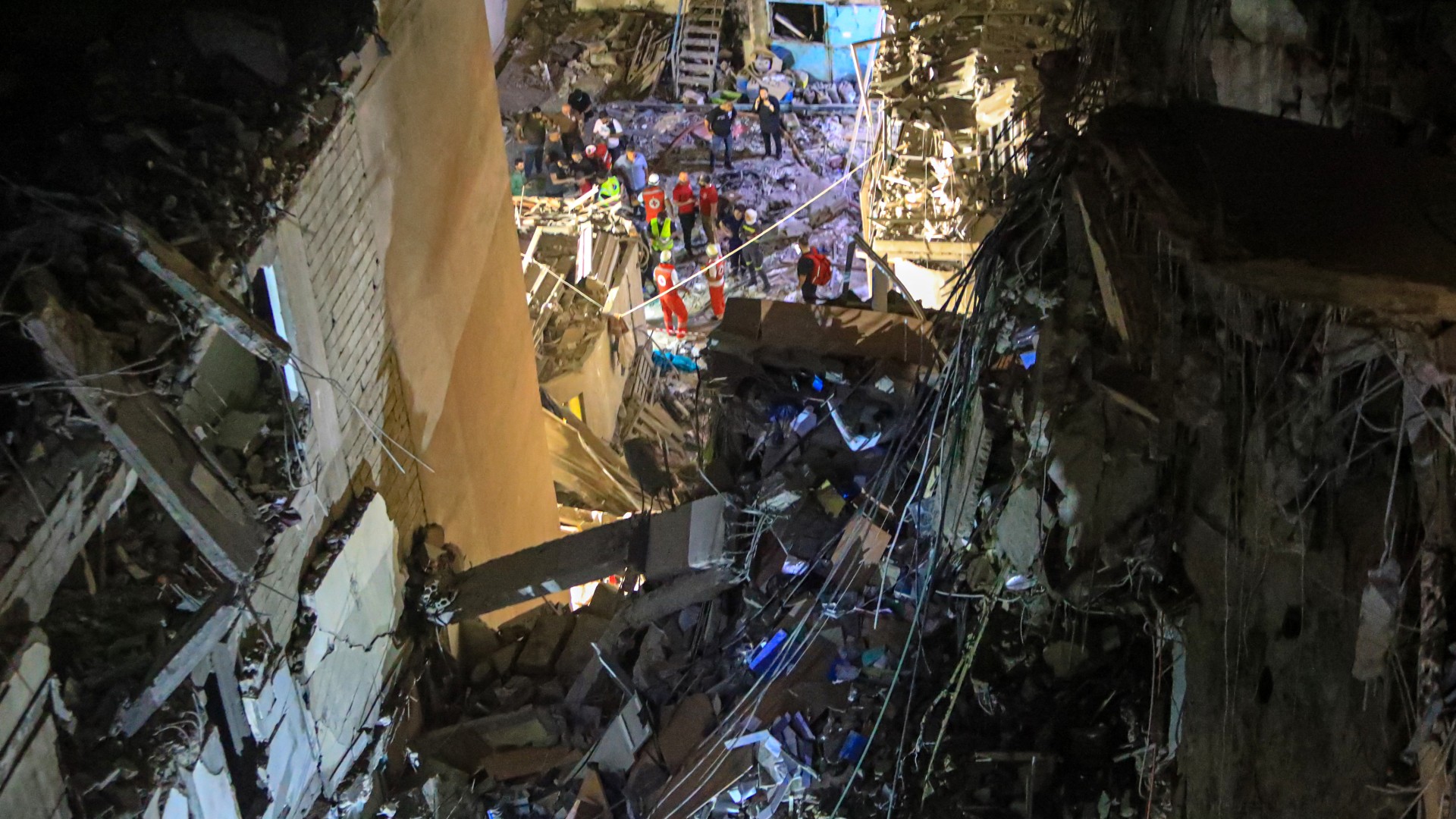Israel confirms strike in Beirut against Hezbollah
The attack is believed to be retaliation for a rocket launch from Lebanon that killed a dozen this week in Golan Heights


A free daily email with the biggest news stories of the day – and the best features from TheWeek.com
You are now subscribed
Your newsletter sign-up was successful
What happened
The Israeli military on Tuesday announced it carried out a missile strike against a Hezbollah commander in suburban Beirut. The attack is believed to be retaliation for a rocket launch from Lebanon that killed at least a dozen children this week in the Druze Arab village of Majdal Shams in the Golan Heights. Hezbollah has denied responsibility for the incident.
Who said what
The attack on Majdal Shams "crossed a red line," Israeli Defense Minister Yoav Gallant said. Israel and Hezbollah militants have been "exchanging near-daily strikes for the past 10 months against the backdrop of the war in Gaza," the Associated Press said. Those volleys have largely been kept at a "low level that would not escalate into full-on war." The intended target of Tuesday's strike was Fuad Shukr, a "senior Hezbollah official and close adviser to Hassan Nasrallah, the group's secretary general," The New York Times said. It is unclear whether Shukr survived.
What next?
Diplomats have scrambled to "fend off" any escalation into a full war between the neighboring states, The Washington Post said. Intensified violence along Israel's border with Lebanon is not "inevitable," American Defense Secretary Lloyd Austin said to reporters on Tuesday. However, "if Israel is attacked, yes, we will help Israel defend itself," he added. "We have been clear about that from the very beginning."
The Week
Escape your echo chamber. Get the facts behind the news, plus analysis from multiple perspectives.

Sign up for The Week's Free Newsletters
From our morning news briefing to a weekly Good News Newsletter, get the best of The Week delivered directly to your inbox.
From our morning news briefing to a weekly Good News Newsletter, get the best of The Week delivered directly to your inbox.
A free daily email with the biggest news stories of the day – and the best features from TheWeek.com
Rafi Schwartz has worked as a politics writer at The Week since 2022, where he covers elections, Congress and the White House. He was previously a contributing writer with Mic focusing largely on politics, a senior writer with Splinter News, a staff writer for Fusion's news lab, and the managing editor of Heeb Magazine, a Jewish life and culture publication. Rafi's work has appeared in Rolling Stone, GOOD and The Forward, among others.
-
 Quentin Deranque: a student’s death energizes the French far right
Quentin Deranque: a student’s death energizes the French far rightIN THE SPOTLIGHT Reactions to the violent killing of an ultra-conservative activist offer a glimpse at the culture wars roiling France ahead of next year’s elections.
-
 Secured vs. unsecured loans: how do they differ and which is better?
Secured vs. unsecured loans: how do they differ and which is better?the explainer They are distinguished by the level of risk and the inclusion of collateral
-
 ‘States that set ambitious climate targets are already feeling the tension’
‘States that set ambitious climate targets are already feeling the tension’Instant Opinion Opinion, comment and editorials of the day
-
 ‘States that set ambitious climate targets are already feeling the tension’
‘States that set ambitious climate targets are already feeling the tension’Instant Opinion Opinion, comment and editorials of the day
-
 ‘Bad Bunny’s music feels inclusive and exclusive at the same time’
‘Bad Bunny’s music feels inclusive and exclusive at the same time’Instant Opinion Opinion, comment and editorials of the day
-
 Trump links funding to name on Penn Station
Trump links funding to name on Penn StationSpeed Read Trump “can restart the funding with a snap of his fingers,” a Schumer insider said
-
 Trump reclassifies 50,000 federal jobs to ease firings
Trump reclassifies 50,000 federal jobs to ease firingsSpeed Read The rule strips longstanding job protections from federal workers
-
 Supreme Court upholds California gerrymander
Supreme Court upholds California gerrymanderSpeed Read The emergency docket order had no dissents from the court
-
 700 ICE agents exit Twin Cities amid legal chaos
700 ICE agents exit Twin Cities amid legal chaosSpeed Read More than 2,000 agents remain in the region
-
 Trump demands $1B from Harvard, deepening feud
Trump demands $1B from Harvard, deepening feudSpeed Read Trump has continually gone after the university during his second term
-
 House ends brief shutdown, tees up ICE showdown
House ends brief shutdown, tees up ICE showdownSpeed Read Numerous Democrats joined most Republicans in voting yes
